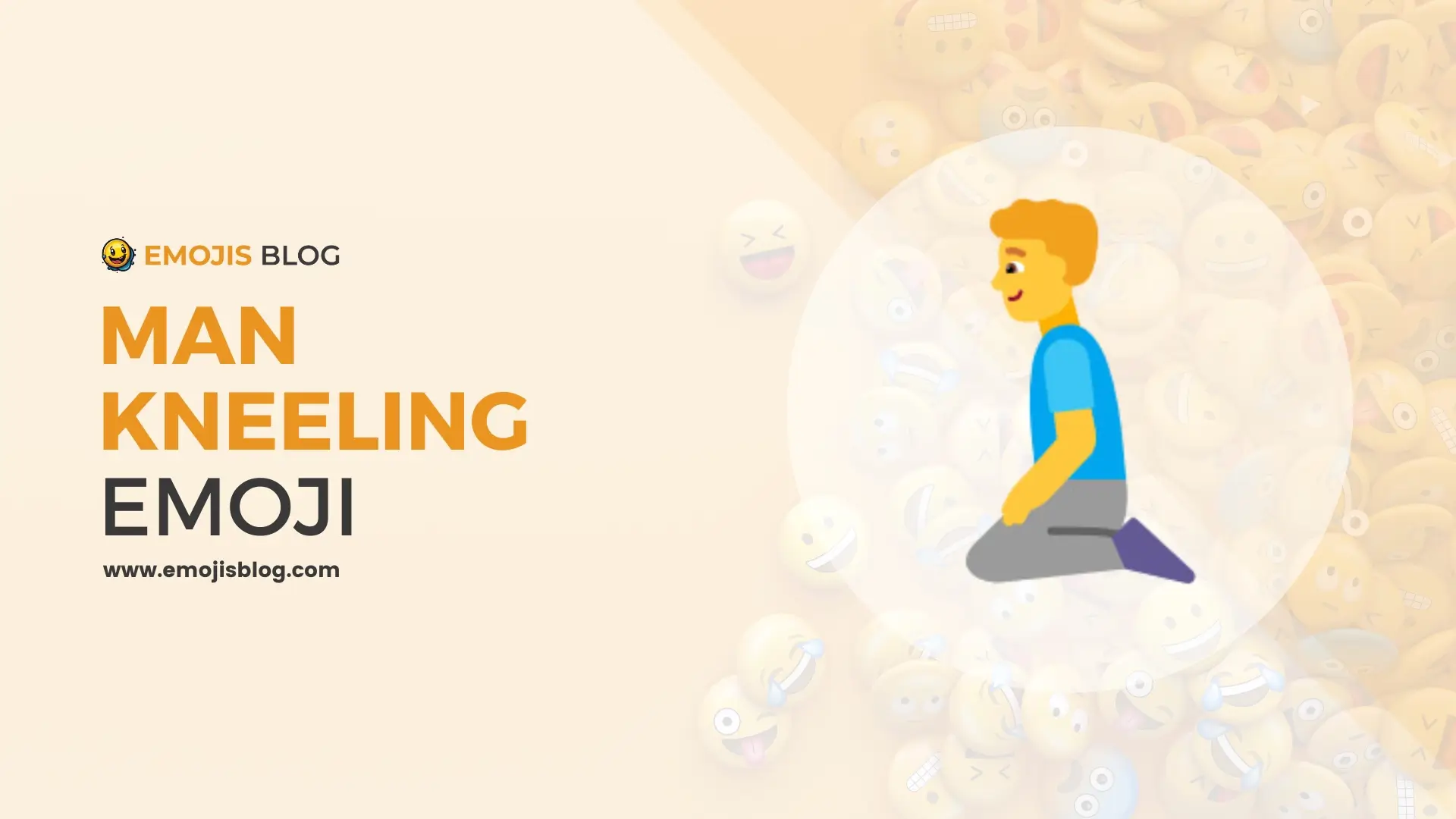What Does The Man Kneeling Emoji Mean 🧎♂️
🧎♂️
Man Kneeling Emoji Meanings 🧎♂️
The man kneeling emoji 🧎♂️ depicts a man on his knees, often with his hands resting on his thighs or the ground, and is used to convey a variety of meanings depending on the context. Common interpretations include submission, deference, romantic proposals, begging for forgiveness, exhaustion, or spiritual meditation and prayer. The emoji’s meaning can vary slightly between platforms due to design differences, and it often reflects cultural nuances where kneeling is a significant gesture of respect or worship. Overall, it serves as a versatile symbol in digital communication to express humility, devotion, rest, or contemplation.
Technical Information
| Attribute | Description |
|---|---|
| Emoji | 🧎♂️ |
| Unicode Version | 12.0 (released in 2019) |
| Emoji Version | 12.0 (released in 2019) |
| Codepoint | U+1F9CE U+200D U+2642 U+FE0F |
| Shortcodes | :kneeling_man:, :man_kneeling: |
| Hex Code | 1F9CE 200D 2642 FE0F |
| Category | People & Body |
| Subcategory | Person Activity |
| Gender | Male (with the possibility of gender variations) |
| Skin Tones | Supports skin tone modifiers |
| Platforms | Apple, Google, Microsoft, Samsung, WhatsApp, Twitter, Facebook, etc. |
| Introduced | March 5, 2019 (Unicode 12.0 release date) |
Understanding the Man Kneeling Emoji 🧎♂️
Emojis have become a fundamental part of modern digital communication, adding emotional nuance and context to text-based conversations. Among the myriad of emojis available, the man kneeling emoji 🧎♂️ is one that can convey various meanings depending on the context. This article delves into the origins, meanings, and uses of the man kneeling emoji.
Origins and Introduction
The man kneeling emoji 🧎♂️ was introduced as part of Unicode 12.0 in 2019. It is one of several emojis that depict different human postures and activities, reflecting a growing effort to include a diverse range of expressions and actions in the emoji lexicon. The emoji is typically displayed as a man kneeling on both knees, often with his hands resting on his thighs or the ground.
Visual Representation
The visual appearance of the man kneeling emoji can vary slightly between different platforms and operating systems, but it generally portrays the same posture:
- Apple: The man is shown kneeling with his hands resting on his thighs, eyes looking forward.
- Google: Similar to Apple’s version, with slight differences in design and color.
- Microsoft: May include slight variations in style and shading but maintains the basic kneeling posture.
- Samsung: Typically follows a similar design pattern, with its own unique stylistic elements.
Common Interpretations
The meaning of the man kneeling emoji 🧎♂️ can be context-dependent, but there are several common interpretations:
- Submission or Deference: The act of kneeling often signifies submission, respect, or deference. This can be in the context of formal ceremonies, religious practices, or acts of humility.
- Proposing or Begging: Kneeling is also associated with romantic proposals or begging for forgiveness. The emoji can thus be used to imply a request or plea.
- Exhaustion or Rest: In some cases, the emoji may be used to indicate tiredness or taking a break after physical exertion.
- Meditation or Prayer: For some users, the kneeling emoji might represent a state of meditation, prayer, or spiritual reflection.
Contextual Uses
The man kneeling emoji 🧎♂️ can be used in a variety of contexts, each adding a unique layer of meaning to digital communication:
- Formal and Ceremonial Contexts: When discussing events that involve formal kneeling, such as knightings or ceremonial rituals.
- Romantic Contexts: To represent a marriage proposal or a romantic gesture of devotion.
- Apologetic Contexts: To convey a deep apology or a request for forgiveness.
- Religious or Spiritual Contexts: To symbolize prayer, meditation, or a spiritual act.
- Physical Fatigue: To show exhaustion or taking a moment to rest.
Examples in Digital Communication
Here are some examples of how the man kneeling emoji 🧎♂️ might be used in conversations:
- Romantic Proposal: “He finally asked her to marry him 🧎♂️💍❤️”
- Apology: “I’m so sorry for what I did. Please forgive me 🧎♂️”
- Religious Observance: “Spent some time in prayer and reflection today 🧎♂️🙏”
- Resting: “After that long hike, I just need a minute to catch my breath 🧎♂️”
Cultural and Platform Differences
While the core meaning of the emoji remains consistent, cultural and platform-specific differences can influence its interpretation. For instance, in cultures where kneeling is a common gesture of respect or worship, the emoji might be more frequently used in religious or formal contexts. Similarly, differences in how platforms design the emoji can subtly influence its perceived meaning.
Conclusion
The man kneeling emoji 🧎♂️ is a versatile and expressive symbol that can convey a range of emotions and actions from submission and proposal to rest and meditation. As with all emojis, its meaning is highly context-dependent and can vary based on cultural and individual interpretations. Understanding the nuances of this emoji can enhance digital communication, allowing for more precise and expressive conversations.

